MFA Program Overview
Goals and Philosophy
The primary mission of the Master of Fine Arts program at the University of North Carolina is to prepare graduate students for careers as professional artists. The secondary mission is to prepare graduate students for teaching positions. MFA students work to develop the practical skills necessary to execute their creative work while refining the intellectual content within the work. Whether students create art within traditional disciplines or transgress disciplinary boundaries, the faculty expects them to engage in meaningful work with personal significance. The department is interdisciplinary so that students work with faculty members in all disciplines. We believe students need to explore the concepts that motivate their work in the most appropriate genre and media, and the faculty is committed to working with each individual to find the most appropriate means of articulating her/his ideas.
Work in the MFA program demands a self-directed and motivated approach. Students are provided with studio space and are expected to work independently. Students have access to all faculty members for both technical information and critique. MFA students may enroll in upper-level undergraduate courses to augment both formal and conceptual frameworks.
The Program
The Master of Fine Arts degree at UNC-Chapel Hill is a two-year, 60-hour program. We are a medium-sized department that offers a 1:1.5 faculty to student ratio. MFA students have studio space and most receive graduate or teaching assistantships with the opportunity to teach their own classes. Students earn 26 of the 60 required credits through independent study and critique under the direction of a faculty member or visiting artist.
Interaction with other members of the studio faculty occurs through a series of scheduled individual and group critique/reviews. In the first year, students interact with the entire studio faculty. During the second year, students select a Thesis Committee composed of at least three members, two of whom must come from the UNC-Chapel Hill studio faculty. Other committee members may be faculty with whom the student has worked outside of the studio program. The Thesis Committee guides the student formally and conceptually toward producing work that represents her/his unique convictions.
The studio faculty believe that technique serves ideas, and we stress object and image-making as integral to the execution of artwork. As each student formulates her/his point of view, faculty members serve as guides and instructors in form and content.
Because of the department’s interdisciplinary approach, students need not choose a particular medium for specialized concentration, but may use different media to express a variety of aesthetic and conceptual goals. This approach does not preclude a media focus, but does mean that considered choices are integral to students’ intellectual and aesthetic explorations.
Extended Programming
Our faculty of artists and art historians work closely with graduate students in developing the exhibitions in our Allcott Gallery and programming of the Hanes Visiting Artist Lecture series. These programs bring some of the most prominent contemporary critics, curators, artists, and thinkers to campus. Additionally, our Visiting Arts Professional program invites curators to visit the graduate students in their studios, allowing them to speak with each visiting professional about career concerns and opportunities in a candid setting. Full archive of past Hanes Visiting Artists can be found here. Recent Visiting Arts Professionals include Sarah Workneh, Nova Benway, Natasha Becker & Paola Gallio, Valerie Cassel Oliver, and Raqs Media Collective.
